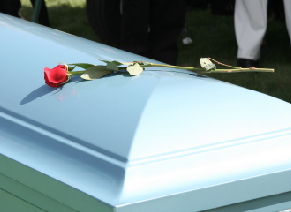Traffic Fatalities through 4th of July

The South Carolina Department of Public Safety announces a preliminary number of nine people being killed on South Carolina highways from Friday, July 1, at 6 p.m. until Monday, July 4, at midnight. During the 2010 Fourth of July weekend six people were killed. In 2005, the last time the holiday fell on a Monday, 17 traffic fatalities on state roads and highways.
Wrongful Death is a type of "tort." A tort is a civil wrong arising from an act or failure to act, independently of any contract, for which an action for personal injury or property damages may be brought. When a negligent actions lead to traffic fatalities, their grieving family will be without the future income. For those who have not suffered a wrongful death, addressing future income may seem untimely. To those who have, they know the pain of losing their home or car after losing their loved one.
| Interstates | 1 |
| US routes, SC roads and secondary roads | 8 |
| Seat belt used | 2 |
| Seat belt not used | 4 |
| Seat belt unknown | 1 |
| Seat belt not applicable | 2 (1 motorcyclist, 1 pedestrian) |
Traffic Fatalities Year to Date in South Carolina
As of July 4th, 399 people have died on South Carolina highways, compared to 392 highway deaths in this same time period in 2010. Of the 288traffic fatalities in 2011, 152 were not wearing seat belts. Through midnight July 4th, 48 pedestrians, 48 motorcyclists and seven bicyclists have died on state roads and highways.Contributory Negligence in Traffic Fatalities
Traffic fatalities can result in a wrongful death lawsuit if a person's death was caused by another person's or company's negligent actions. Generally, negligence on the part of a decedent contributing to his or her death bars recovery by the beneficiaries. Moreover, it is a defense against beneficiaries whose negligence proximately contributed to the death sued upon. It is also a defense against parents and other custodians seeking to sue for the wrongful death of a child. Pursuant to the Uniform Law Commissioners' Model Survival and Death Act, the conduct of a survivor which contributed to death is a defense to the survivor's recovery in death actions. The negligence of the personal representative, who is not a beneficiary but who brings the action, does not affect the matter or amount of recovery where the cause of action belongs to the beneficiaries. The defense of contributory negligence is not available when the cause of action is based upon wanton negligence. Contributory negligence bars an action based upon ordinary negligence. Contributory negligence has no application where defendant is guilty of willful and wanton negligence. Such negligence incurs liability irrespective of contributory negligence. Willful and wanton negligence is the reckless disregard of the safety of a person or property of another by failing to exercise ordinary care to prevent the impending injury after discovering the danger. The defense of contributory negligence is grounded on the assumption that a court of law cannot apportion the damages arising from an injury caused by the negligence of two parties. The law will not undertake to apportion the consequences of concurring acts of negligence. Therefore, when injury is caused by the concurring negligence of two or more persons, each is liable for all the damages thus caused. Moreover, when damage is caused by the concurring negligence of the plaintiff and defendant, the former cannot recover at all, for the same reason. Wrongful death lawsuits arising from traffic fatalities requires experience that not all personal injury lawyers posses. The Clore Law Group is a Charleston wrongful death law firm experienced in traffic fatalities.Contact Us
Clore Law Group welcomes your questions about any issues concerning a serious personal injury, car accident, medical malpractice, nursing home neglect, or business tort. If you have a viable claim, we’ll explain the legal process. Since consultations are always free, there’s no cost in learning your legal options.